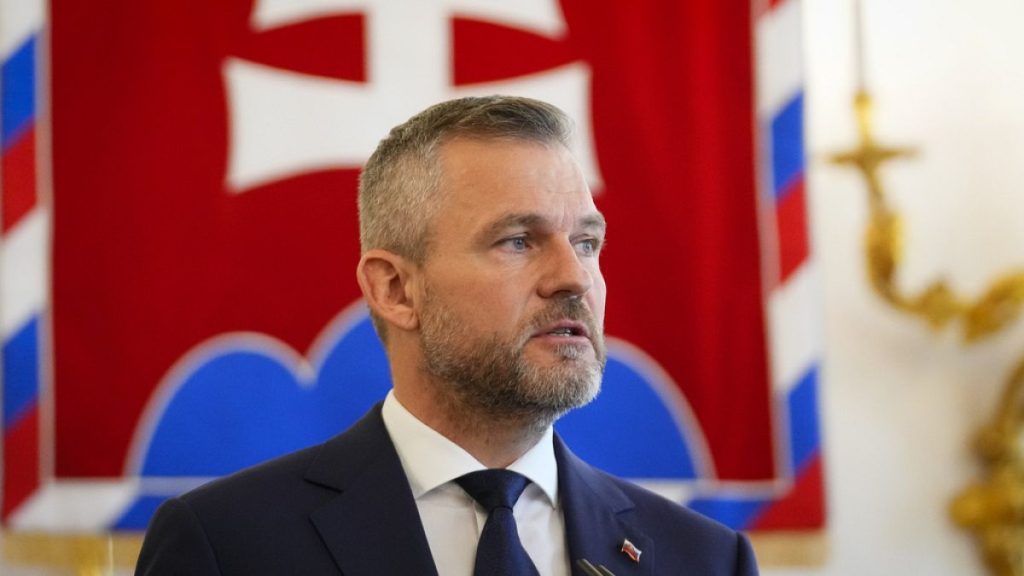The inauguration ceremony for Slovakia’s new president, Peter Pellegrini, took place amidst heightened security following an assassination attempt on his close ally, Prime Minister Robert Fico. Pellegrini called for national unity in his speech at a special session of Parliament in Bratislava, emphasizing the importance of solidarity within the country. His victory in the presidential runoff vote solidified Fico’s control of power, with his leftist Smer party winning parliamentary elections and forming a governing coalition with other parties. Critics are concerned that Slovakia under Fico will shift towards a pro-Russian and anti-American stance, similar to the direction taken by Hungary under Prime Minister Viktor Orbán.
Pellegrini’s political career has been closely intertwined with Fico’s, as he served as his deputy in the Smer party before becoming prime minister in 2018. Their reunion following the scandal-tainted loss in the previous election enabled the formation of Fico’s government. Pellegrini, who favors a strong role for the state, did not question Fico’s policies during his time as Parliament’s speaker. The presidency in Slovakia is largely ceremonial, with the president appointing the prime minister and swearing in the new government. The head of state also holds the power to veto laws, though they can be overridden by Parliament with a simple majority.
The recently elected President Pellegrini succeeded Zuzana Čaputová, the country’s first female head of state who was known for her support of neighboring Ukraine in its fight against Russia’s invasion. Čaputová did not seek a second term. Fico, who did not attend the inauguration ceremony due to recovering from being shot in the abdomen, has faced strong opposition from many in Slovakia. Thousands have taken to the streets in protest against his pro-Russian and other policies, including plans to amend the penal code and take control of public media. The concern among critics is that Slovakia may stray from its pro-Western course and align more closely with Hungary under Orbán’s leadership.
As the head of state, President Pellegrini will wield certain powers such as appointing Constitutional Court judges and having the ability to veto laws. However, most executive powers lie with the government led by the prime minister. Pellegrini’s victory in the presidential runoff vote further solidified Fico’s grip on power, with his allies now controlling major strategic posts. However, there is apprehension among critics that Slovakia may abandon its pro-Western stance and mirror the policies of Hungary under Orbán. Pellegrini’s role in the governing coalition alongside Fico and the Slovak National Party has raised concerns about the direction Slovakia will take under their leadership.


